South Korean cinema is best known for its grotesque, no-holds-barred, onscreen violence that can easily find some space in the list of the most unsettling movies. The biggest name in Korean cinema continues to be Park Chan-wook. His work not only gained international acclaim but also set the stage for a new wave of filmmakers who specialize in genre films that captivate audiences at both domestic and prominent international festivals, contributing to the rich tapestry of best Korean movies.
Bong Joon-ho and Kim Jee-Woon, contemporaries of the influential Park Chan-wook, have contributed significantly to the rise of Korean cult cinema, a movement that Park spearheaded. Together, these filmmakers have propelled South Korean cinema to international acclaim. Meanwhile, directors like Lee Chang-dong, Kim Ki-Duk, Hong Sang-soo, and Im Kwon-Taek have earned recognition for their artistry in film festivals, creating a unique space for themselves. Balancing mainstream appeal and artistic depth, South Korean cinema has evolved, offering a diverse array of films that have reshaped the industry. This list presents the best South Korean movies of the 21st century, showcasing this transformation.
40. Hope | Lee Joon-Ik | 2013

“Hope,” a film inspired by the harrowing Nayoung Case of 2008, delves into the story of a seemingly perfect family shattered by a horrific tragedy. Their world turns upside down when their 8-year-old daughter, So-won, is subjected to a brutal attack. Miraculously surviving the act of cruelty, So-won is left with deep psychological and emotional wounds, as is her family.
While “Hope” diverges significantly from the real events of the infamous Nayoung Case, its portrayal of So-won’s journey towards healing and resilience is deeply moving. Despite the film not delving extensively into So-won’s psychological struggles, her path to recovery offers a message of hope. The film uses melodrama to navigate the disturbing nature of the events, effectively conveying the emotional and psychological impacts on So-won and her family. This approach, though heavy on emotion, is a poignant way to address such a distressing and sensitive subject matter.
39. Pietà | Kim Ki-Duk | 2012
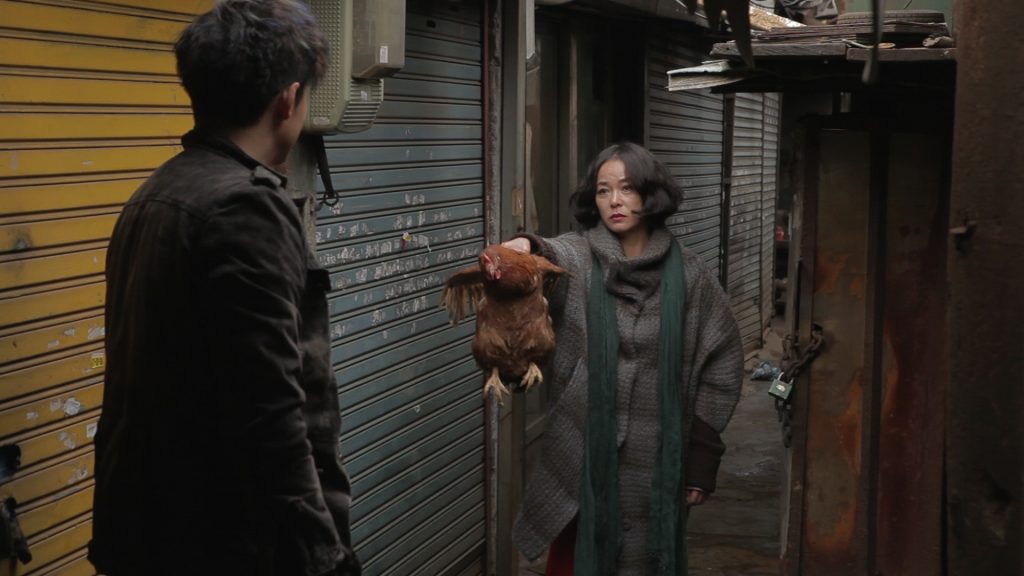
Can we ever truly escape the shadows of our past? This question echoes at the heart of Ki-Duk Kim’s “Pieta” (피에타), a film that delves deep into the complexities of human nature and morality. Known for his contemplative work in “Spring, Summer, Fall, Winter… and Spring,” Kim continues his exploration of the human psyche in “Pieta.” This movie, an intense and dark portrayal, revolves around a ruthless loan shark, whose lack of compassion makes him a feared figure. His method of dealing with debtors is not just harsh but torturously cruel, leaving them crippled and in agony.
The protagonist’s life, marked by isolation and depression, takes an unexpected turn with the arrival of a mysterious woman who insists on staying by his side. As he begins to accept her presence, he dares to hope for redemption. “Pieta” is a profound examination of the human condition, showcasing how love can be both a genesis and a curse, leading to joy, pain, and revenge. It’s a film that doesn’t shy away from discomfort, gripping viewers with its intense narrative and leaving a lasting impact. Despite a shocking revelation towards the end, “Pieta” holds its audience in a hypnotic grasp, ending on a note that is as emotionally heavy as it is thought-provoking, making it one of the most impactful Korean movies.
38. Thirst | Park Chan-Wook | 2009
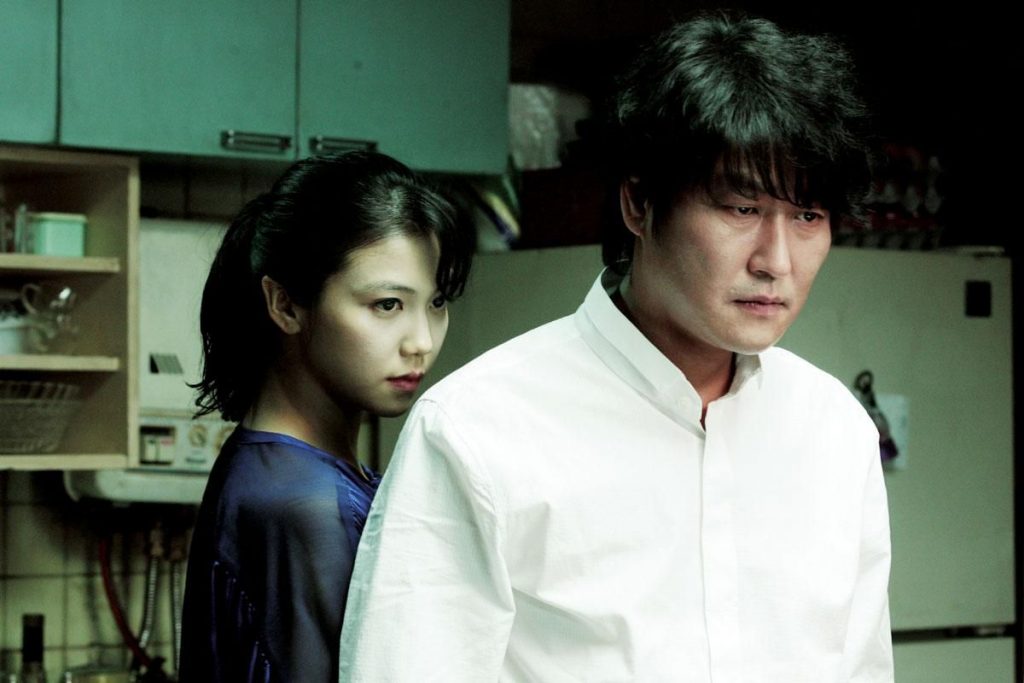
Park Chan-Wook reimagines the classic vampire archetype, moving away from the stereotypical high-cheekboned, blood-sucking figures of popular culture. His take in “Thirst” is a fresh, evolved vampire narrative that feels surprisingly relatable, despite the fantastical nature of its subject.
In “Thirst,” Park Chan-Wook’s creativity shines through with a flurry of inventive ideas and deep character development. His style, often veering into the realms of the unsettling and creepy, is on full display here. The film explores dark and cynical themes that might leave viewers unsettled. The characters in “Thirst” are complex, and Park skillfully infuses them with emotional depth, setting the stage for a gripping moral conflict between two profoundly different beings bound by their alienation. This cinematic approach not only challenges the norms but also adds a unique, thought-provoking dimension to the Korean film landscape.
37. The Host | Bong Joon-ho | 2006

Bong Joon-ho’s monster drama, ‘The Host’, is less of a horror film about a slimy tentacle monster unleashing terror across the Han River shoreline and more of a subtle but scathing criticism of mass hysteria, health-care bureaucracy, consumerism, and pollution.
The drama surrounding the dysfunctional family acts as a connecting tissue to address the said issues in the garb of a monster movie without weighing down the screenplay. One of the greatest achievements of Bong Joon-ho is to pull off a moment of hilarity during the saddest scene, and he does it with panache in ‘The Host’. Try not to laugh when the family is mourning the death of their lovable teenage girl.
The Host is Part of Our List “The 15 Best Korean Movies Streaming on Netflix”
36. On the Occasion of Remembering the Turning Gate | Hong Sangsoo | 2002
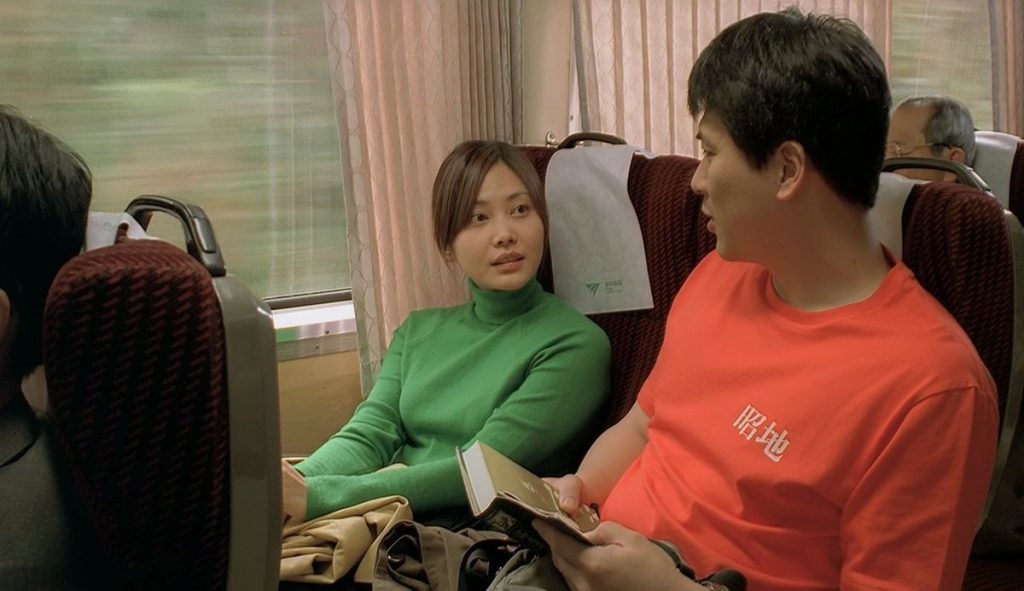
In ‘On the Occasion of Remembering the Turning Gate,’ one of Hong Sang-soo’s earlier films, we’re treated to a narrative rich in complex emotions. This movie, which stands out in the Korean cinematic landscape, follows Gyung-soo, a young professional actor. He finds himself entangled with two women during a visit to a friend, each romantic encounter weaving seamlessly with the film’s unfolding events, yet distinct in their outcomes.
Without revealing too much and spoiling the experience, it’s evident that Hong Sang-soo masterfully plays with emotions. He employs nuanced techniques, utilizing standard tropes that have become a hallmark of his filmmaking style. This film is a testament to the diverse stories that make Korean movies some of the most engaging and thought-provoking in cinema.
35. Il Mare | Lee Hyun-Seung | 2000
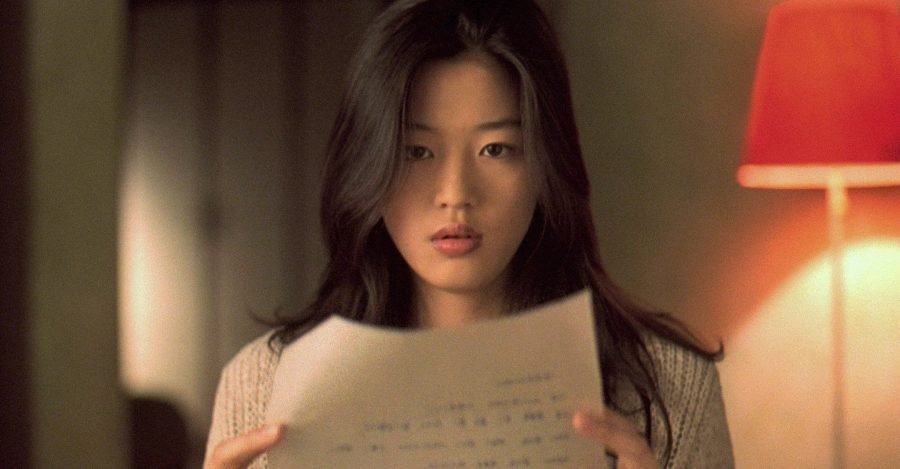
Lee Hyun-Seung delicately blends old-school romance with a powerful yet minimalistic visual style. He paints every frame with stunning, idyllic, soft-focus shots without indulging in heavy-handed dialogues, letting the visible curiosity and well-guarded personal space of characters bring the narrative alive.
Two troubled individuals, separated by a temporal time warp, connect through letters found in the letterbox at Il Mare, the name of a Lake House. The idea sounds preposterous but the way characters navigate through their personal space and heal each other, without succumbing to the genre tropes, via the fantastical exchange of letters has more to do with impulse and the emotion of love than the plot itself. Hollywood could not resist the charm and remade the film in 2006 titled ‘The Lake House‘, starring Keanu Reeves and Sandra Bullock.
34. New World | Park Hoon-jung | 2013
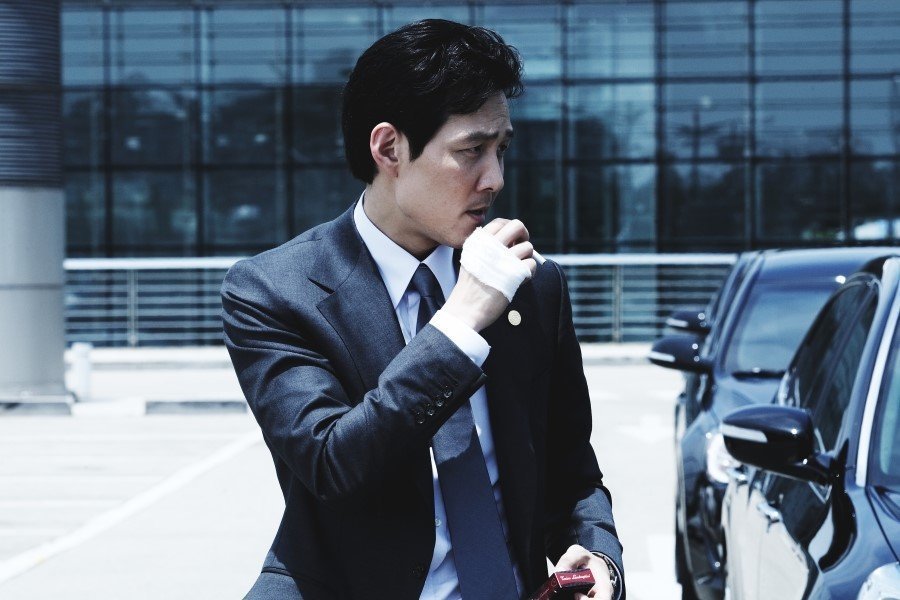
Park Hoon-Jung’s stylish gangster drama ‘New World’ is an experiential character study of the Korean Crime syndicate’s inner functioning, which starts to fall apart after the death of the Chairman in a staged road accident. A helpless Ja-sung (Lee Jung-Jae), an impassive undercover cop who infiltrated the syndicate eight years ago, has his loyalty questioned when he doesn’t find a way out. Navigating through the crumbling empire, the drama unfolds on a Shakespearean landscape made up of betrayal and shifting loyalties.
‘New World’ could have closely resembled ‘Infernal Affair’ in its setting but Park Hoon-Jung takes a humanistic approach in fleshing out the characters, including those gangsters who feel vulnerable and threatened. This does not mean ‘New World’ is devoid of gut-churning action sequences and bone-chilling thrilling moments.
33. Hill of Freedom | Hong Sang-soo | 2014
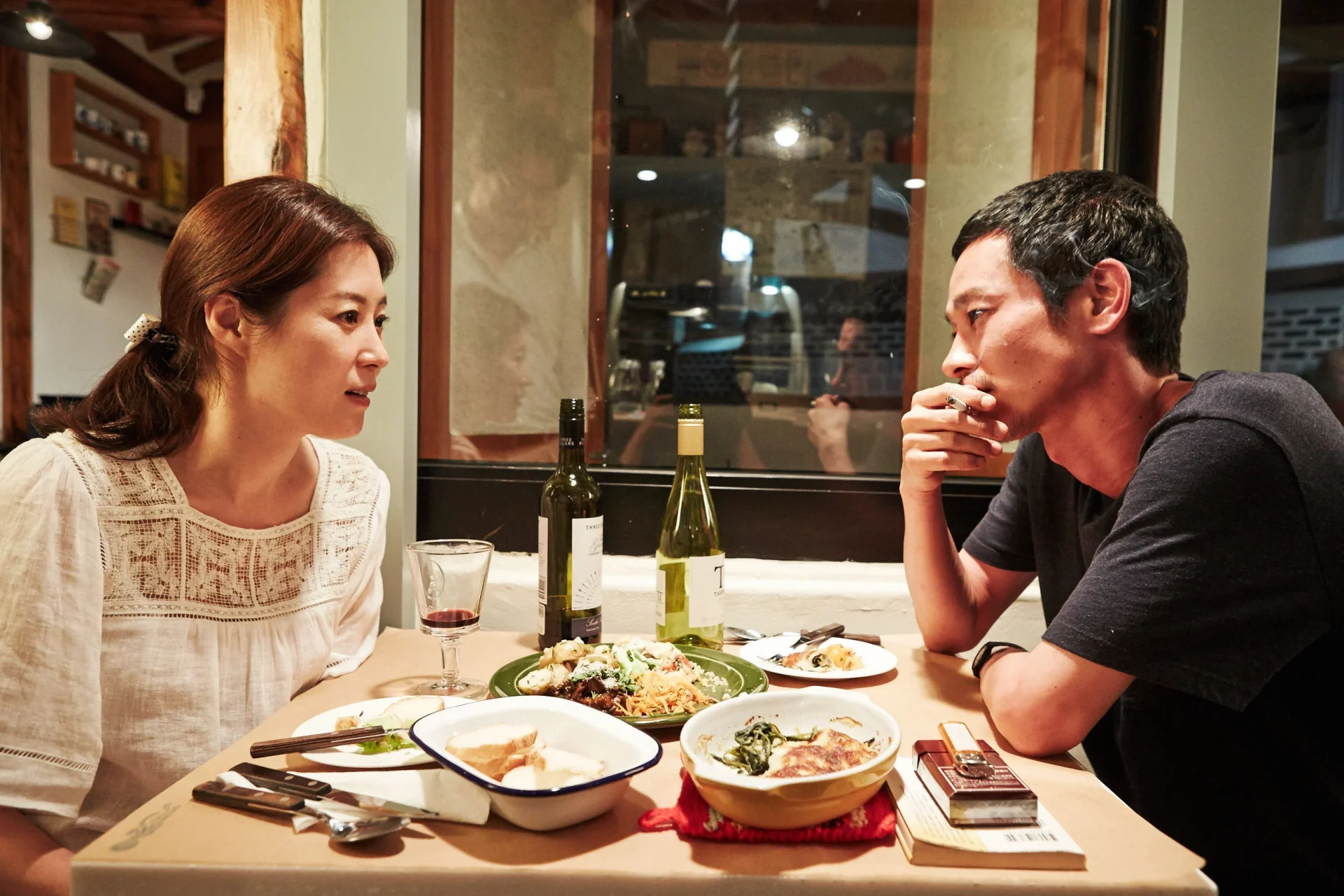
Hong Sang-soo is a prolific filmmaker who often finds emotional depth in his pocket-size dramas amidst mundane and awkward circumstances, often resulting from fundamental misunderstandings and misinterpretations among the characters.
A look at his filmography will show how he recalibrates and rehashes dramas around different renditions of the same characters in most of his films, and “Hill of Freedom” is no different. It’s a bittersweet romantic comedy that showcases the director’s masterful storytelling.
The film follows Kwon, a woman who reads a bundle of letters out of sequence, providing a perfect excuse to present the narrative in a non-linear manner, putting us in Kwon’s shoes. The letters are written by Mori, a Japanese man who tells the everyday story of his stay in a small village, which includes his relationship with Young-sun, a café waitress whose dog he saved.
The letters mention a series of oddball adventures and comical episodes with new acquaintances. Despite its modest scope for the dramatic expansion of the narrative, Hong manages to create a heartfelt and, more importantly, sincere film that will stay with the viewer long after it’s over.
32. The Dark Figure of Crime | Kim Tae-Kyun, Kim Tae-Gyun | 2019

‘Dark Figure of Crime’ is a gritty, visceral crime-drama that works both as a fine character study, exploring the inimical side of human nature, and a drama about hope in a bleak and dejected world. It is everything that Kim Hyeong-jun’s murder mystery ‘No Mercy’ wanted to achieve but fell short of due to his overindulgence in smartness. Hyong-min’s life is turned into a visceral chase when a cold-blood serial killer Tae-oh casually confesses to an unreported past crime.
Kim Yoon-Seok’s understated and committed performance layers the character. It dismantles all the “detective” stereotypes. Hwang Ki-suk’s muted cinematography renders a somber feel to the already desolate drama, reminiscent of the way Kim Hyung-Koo achieved the murkiness in ‘Memories of Murder.’ Yoon-Seok contrasts the city in the night, glistening with color, against the darkness of the crime committed. The created paranoia pulls us deep into the ambiguous state of Tae-oh’s narration.
31. The Bow | Kim Ki-Duk | 2005
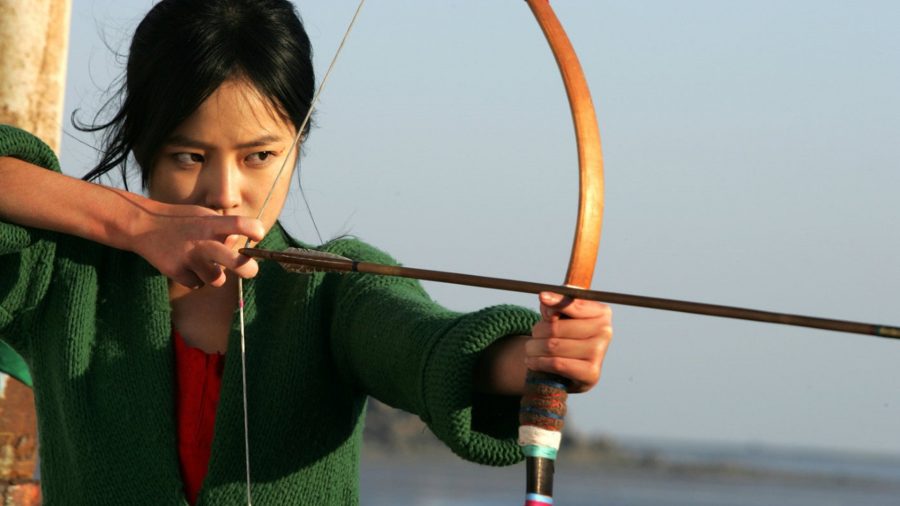
Kim Ki-Duk’s ‘The Bow’ is an elusive and ambiguous character study of a 16-year-old girl who has spent a decade on a boat. The girl is living under the guardianship of an old man with a multipurpose bow, who plans to marry her when she turns 17. She has been away from civilization for a decade, and that has serious psychological implications evident in the behavior of the character.
The peaceful, routine life and bond of trust show a crack when a young college student boards their tugboat. The crack widens when the girl internalizes the freedom of choice. Kim Ki-Duk never explains the motive or tries to resolve the conflicts. Instead, he immaculately uses silence and soothing music to reflect upon the emotional quandary of the characters.
30. A Taxi Driver | Jang Hoon | 2017
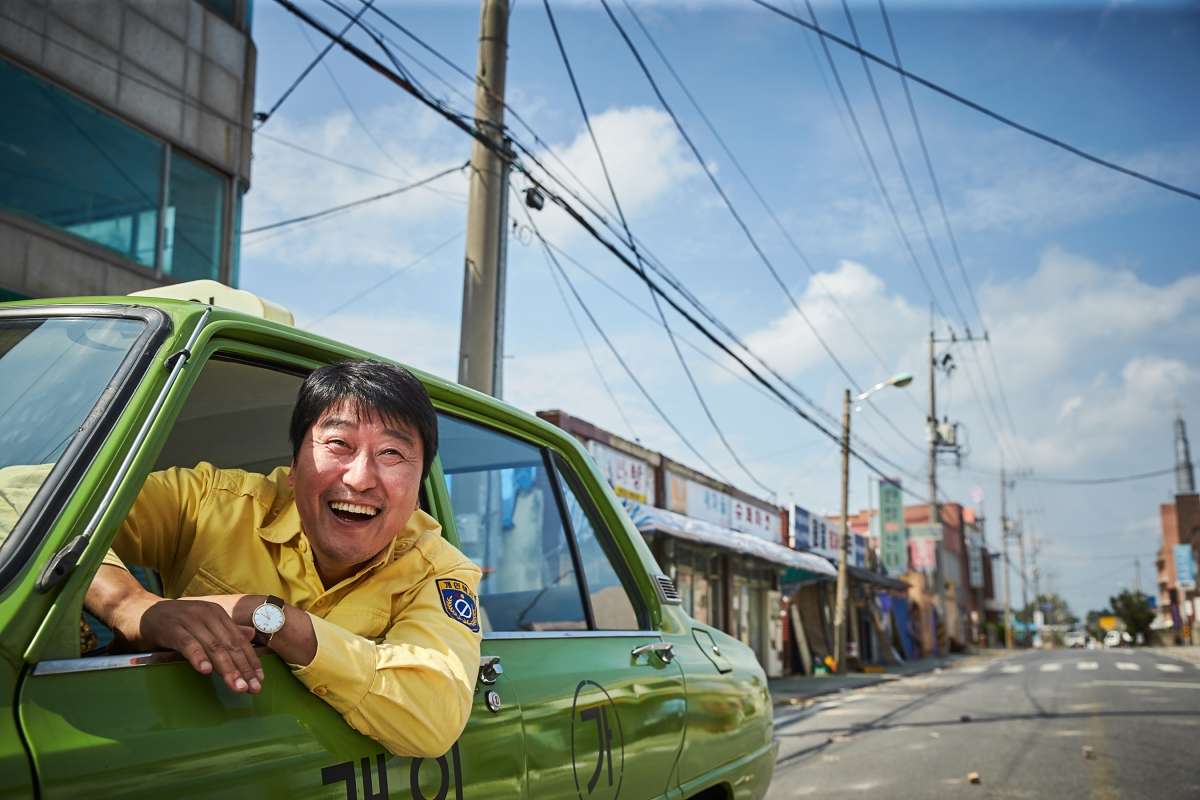
Jang Hoon adds a dramatic twist to the portrayal of the tragic events of the Gwangju Uprising in 1980. He places at the story’s center a taxi driver, Kim Man-seob—an innocent, widowed spirit, and a cynical man who initially believes soldiers can do no wrong. Impeccably played by Song Kang-ho, Kim Man-seob becomes our ears and eyes, witnessing the unfolding horrors of the Gwangju Uprisings, which ultimately claimed the lives of 2,000 innocent civilians. His entire perception of the world is challenged as he travels to Gwangju as a passenger carrying a German reporter, Jürgen Hinzpeter. Through this journey, he confronts the harsh realities of the world. To the filmmaker’s credit, he skillfully avoids melodrama and contrivances. The restrained filmmaking ensures that the drama does not overshadow the event itself. The current geopolitical tensions make this movie even more relevant and a must-watch.
29. The World of Us | Yoon Ga-Eun | 2016
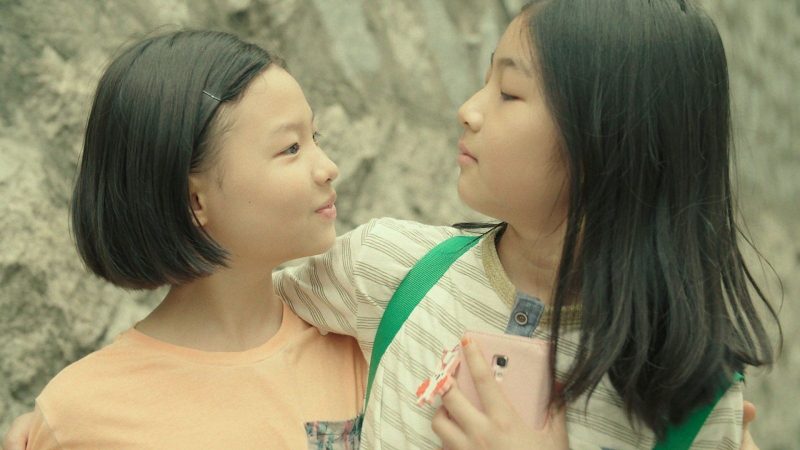
Yoon Ga-Eun examines the intrinsic and extrinsic pressures that children in modern Korea face without a hint of melodrama or manipulation of the events. When an outcast, Sun (Choi Soo-in), constantly bullied in school, meets the newcomer, Jia (Seol Hye-in), during a summer holiday, she believes she has finally found a friend.
The friendship, built on the need, turns sour when social and financial status interferes. The strain becomes so damaging that the consequences are felt outside the school campus as well. Leisurely paced, aesthetically minimalist, and absorbing throughout, “The World of Us” takes the audiences on a ride they might have experienced themselves or seen during their childhood. The performance of both child actors is effortless and exudes naturalism.
28. A Bittersweet Life | Kim Jee-Woon | 2005
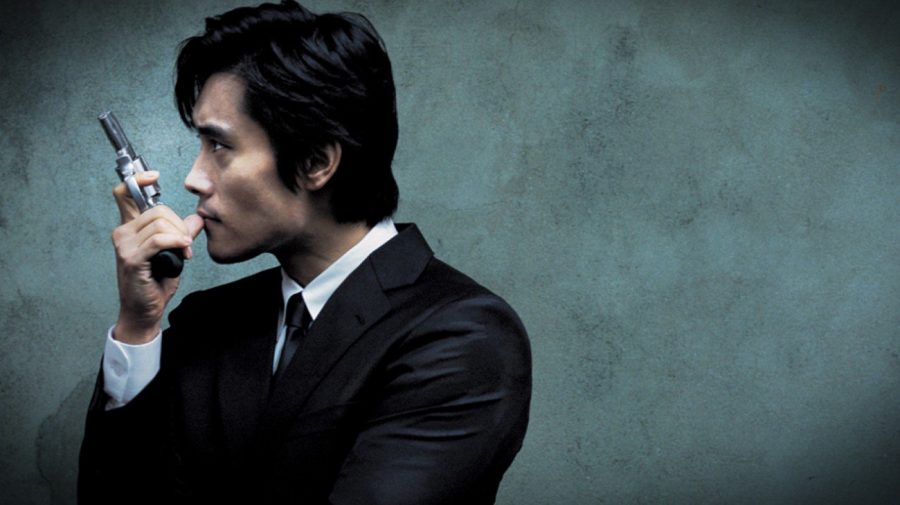
“A Bittersweet Life” is often acknowledged for two things: its razor-sharp action scenes, stitched together, one after another, and the taut narrative that doesn’t let you catch your breath until the end credits. The affecting character drama of its protagonist is rarely brought up for discussion. But I strongly believe that what makes those action scenes worthy is the invigorating drama surrounding Lee Byung-hun’s Sun-woo.
A man who has never been in love before suddenly finds himself at the mercy of the romantic feelings that he fails to comprehend. What brings sweetness to Sun-woo’s bitter life is his boss’s mistress, Hee-soo (Shin Min-ah), playing songs at a music recital and reflecting on how empty and shallow his life is. The realization of emptiness propels him to go against his boss, which results in a violent feud.
27. Scattered Night | Sol Kim and Jihyoung Lee | 2019
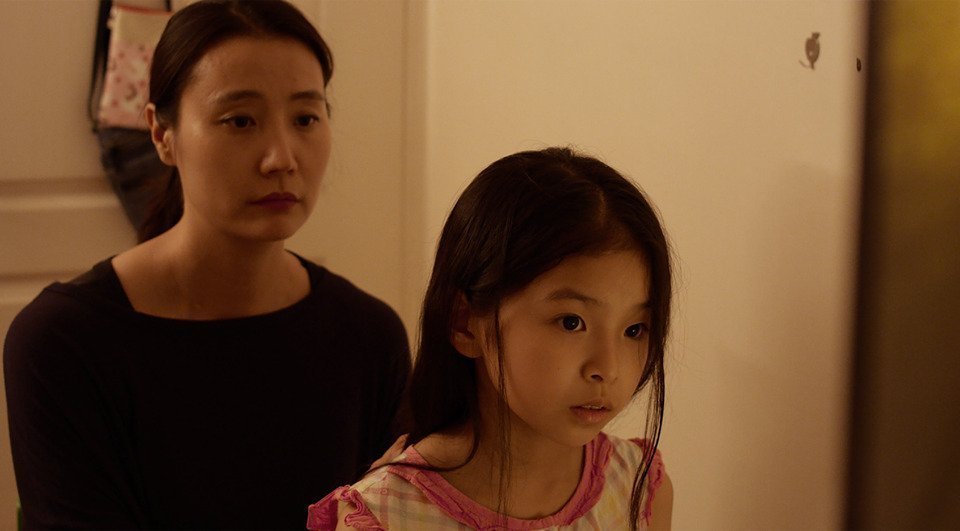
Kim Sol and Lee Jihyoung’s directorial Korean film ‘Scattered Night’, grounds the plot in this unfortunate event while giving an intimate and internal perspective from the children’s point of view, especially from the youngest daughter Sumin, with no melodrama and glossy arc to feel their state or with no resolution in hindsight.
We featured Scattered Night in the Best Movies of 2019
Scattered Night is an intimate and intricate portrayal of a collapsing family seen through the eyes of the smart but naive Sumin. It does not succumb to providing straightforward answers to an emotional quandary.
26. Oasis | Lee Chang-dong | 2002

It is serendipity that two of my most loved, transgressive romantic films of the century were released in the same year: Punch Drunk Love (Paul Thomas Anderson) and Oasis. The lead characters in their films are atypical men who do not succumb to their limitations to garner sympathy. Neither of these filmmakers ever tries to appease their audiences by making the character likable or heroic. They never judge their character for what they are, and that is where lies the strengths of these films.
“Oasis” opens with Hong Jong-du (Sol Kyung-gu) released from prison after serving three years for a hit-and-run case. His immediate family has moved to a new place without providing the forwarding address. They do not want him. They do not even care if he is dead or alive. His mother is indifferent to his presence.
Hong Jong-du is socially awkward. His gleaming eyes and the perpetual smile on his face could be deceiving. You feel for him, but you would probably run away if you saw him in person. He lacks social and familial skills. Even after the cold reception and explicitly telling him how life was good in his absence, he doesn’t budge and sticks with the family, as if he doesn’t understand that his family does not want him.
His life turns interesting when he meets disabled Gong-ju Han (So-ri Moon) on his visit to the family of the man he killed in an accident. She is suffering from cerebral palsy. Gong-ju Han’s brother and sister-in-law shifted her to a new apartment meant for a disabled person, locking her in a shabby small room. Abandoned by their families, they are ignored and abused for self-gain. Lee Chang-dong does not manufacture sympathy for them neither does he judge them. “Oasis” is a story of what constitutes love and desire between two physically disabled people in society.
25. I Saw the Devil | Kim Jee-Woon | 2010

If Oldboy’s violence made your stomach churn, Kim Jee-Woon’s ‘I Saw The Devil’ will make you squirm in your seat. It borders on torture porn but never feels like one as the film utilizes a bloody violence ballad as a vessel to serve the narrative and feed characters with a sense of purpose rather than merely an exercise in shocking the audience.
‘I Saw The Devil’ is driven by powerful performances, grotesque on-screen violence, bolstered by fitting dark cinematography and a haunting score — Korean director Jee-Woon Kim’s 2010 horror/thriller is perhaps one of the scariest films of the 21st century.
24. Oki’s Movie | Hong Sang-soo | 2010
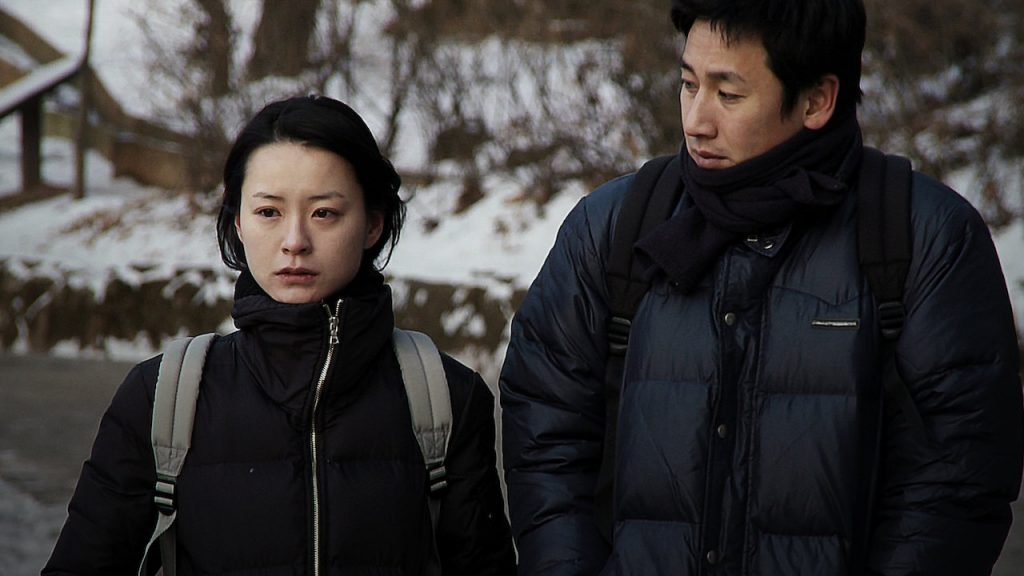
Hong Sang-soo put a frustratingly unstructured but exhilarating narrative spin on the love triangle. It is a self-referential metadrama adorned with sly wit and awkward droll. Ambiguities, ironies, and the rift between men’s and women’s experiences open in the fractured narrative that reflects the uneasy and painful chaos of love. It chronicles the upsetting but amorous entanglement of a neurotic, insecure young director Jingu, a mature but questionable professor Song, and a fellow student Oki.
23. Oldboy | Park Chan-wook | 2003
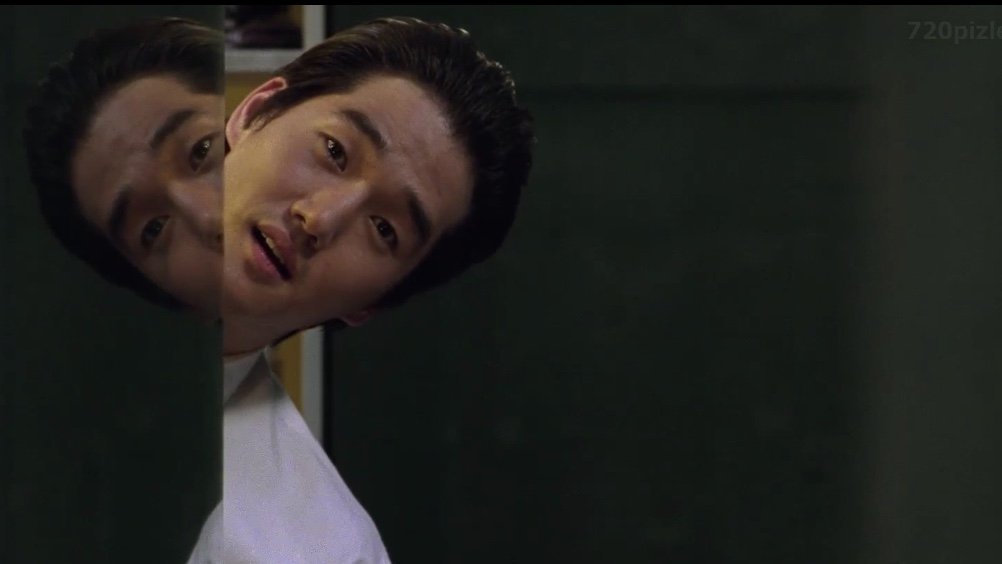
Oldboy brought international attention to Korean is now considered a pioneering movie in the genre. The second chapter in Park Chan-wook’s ‘Vengeance Trilogy’ is a hyper-violent, bloodcurdling revenge symphony, an exotic revenge drama harboring the Oedipus complex, incest, and flickering hope of empathy and humanity. It is mixed with skin-crawling off-screen violence that would leave you in disgust, fear, and horror. What starts as a surreal dream spirals down into a perdition nightmare having Kafkaesque aesthetics.
A drunken, arrogant man is held captive for fourteen years and one day, he is suddenly released without any explanation and given a cell phone, money, and expensive clothes. He navigates a meaningless life to find a purpose, which eventually translates into finding the man – Lee Woo-jin- who did it to him and seeking revenge. Park Chan-wook paints both characters with a strong stroke of grey and a tinge of empathy, but he never takes any moral high ground in the end. Though revenge is at the forefront of the film, the equally intriguing subplot trails the genesis of Lee Woo-jin’s idea of revenge born out of humiliation and cathartic emotions as a way for repentance.
22. Broker | Hirokazu Kore-eda | 2022
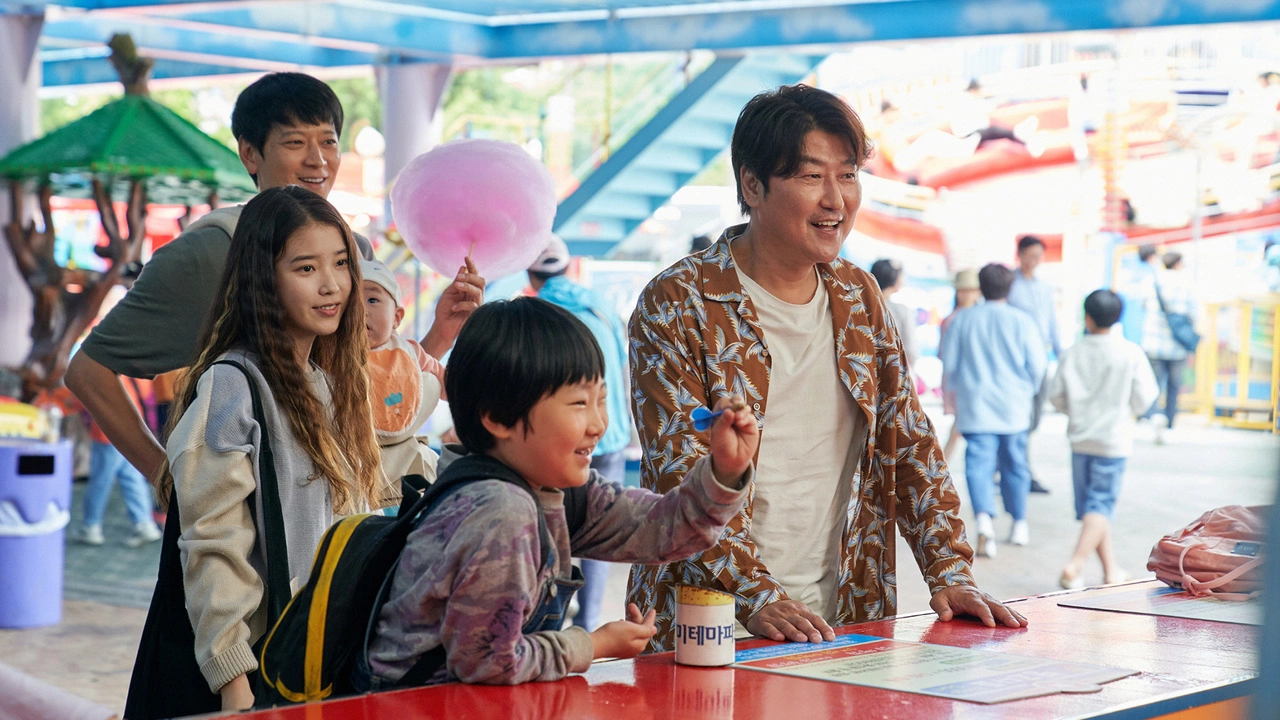
Hirokazu Kore-eda, known for examining the dynamics of makeshift families, follows up his star-studded French movie “Truth” with “Broker.” South Korea’s baby boxes are a heartbreaking reality that many people are unaware of. Kore-eda takes you on a journey through this world, shedding light on this cruel situation. He seamlessly weaves the tales of two brokers who discreetly place abandoned babies with hopeful families, a regretful mother longing for a second chance, and relentless investigators on their trail.
While the characters may seem self-centered at a cursory glance, Kore-eda’s adept narrative reveals their profound motivations and vulnerabilities. He approaches these characters with immense love and empathy, masterfully sidestepping melodrama. The ensemble cast features the formidable Song Kang-ho, who secured a Best Actor award at Cannes and includes talents like Bae Doona, with whom Kore-eda worked in “Airdoll”, Gang Dong-Won, and the versatile Lee Ji-Eun. “Broker” offers a riveting look into the intricacies of family and the profound extents of redemption.
21. House of Hummingbird | Bora Kim | 2019
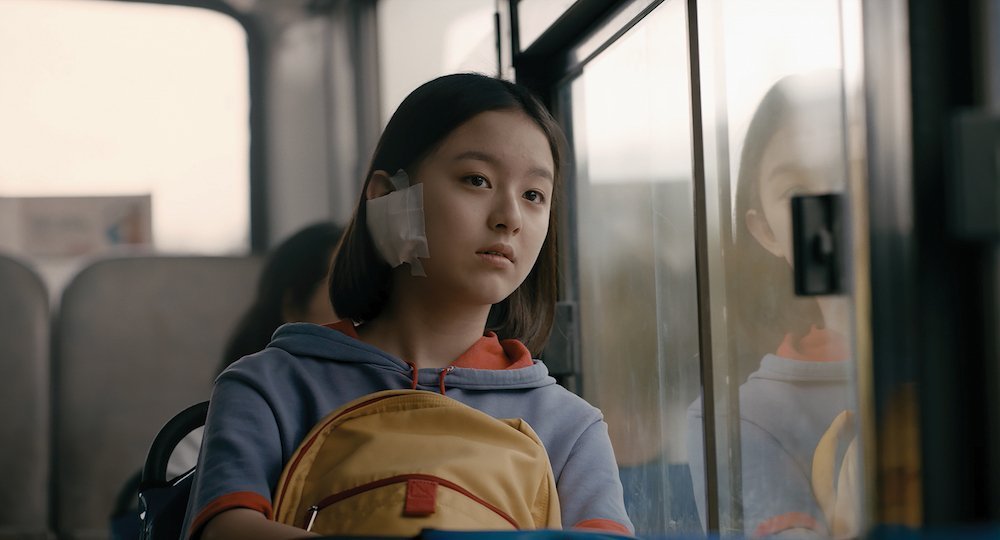
Arguably, one of the best Korean movies of 2019. In her feature debut, Bora Kim paints an intimate and sensitive story of a lonely and whimsical eighth-grader, Eunhee (Ji-hu Park), during the mid-90s. The intentional glacial pacing of the narration allows nuanced observation of Korean culture and the marginal role of women in society.
We featured House of Hummingbird featured in the Best Movies of 2019
Eunhee is trying to navigate life through her dysfunctional family, abusive brother, and her bullies in school while figuring out her place in society. Bora Kim presents an honest and poignant take on youth, filled with warm cinematography from Gook-Hyun, and with a powerhouse performance from the young Ji-hu Park.
20. The Way Home | Jeong-Hyang Lee | 2002

The plot of ‘The Way Home’ is familiar and bound to have sentimental elements. A gentle, mute grandmother (Eul-Boon Kim), who is unfamiliar with modern technology, including electricity, drainage systems, and Kentucky Fried Chicken, wins over her spoiled grandson (Seung-Ho Yoo) when they spend a summer together in her rural South Korean village.
The economic slowdown has compelled the grandmother’s (Eul-Boon Kim) daughter to leave Sang-woo for summer until she finds a job in a city. Writer & director Jeong-Hyang Lee has realized the story with such tenderness and affection for the characters that it ‘feels’ fresh and new. He avoids all the clichés and genre tropes to structure a narrative around the character whose arcs are at the behest of their internalized feelings rather than the ideological and social differences between its protagonists.
19. The Day He Arrives | Hang Sang-soo | 2011
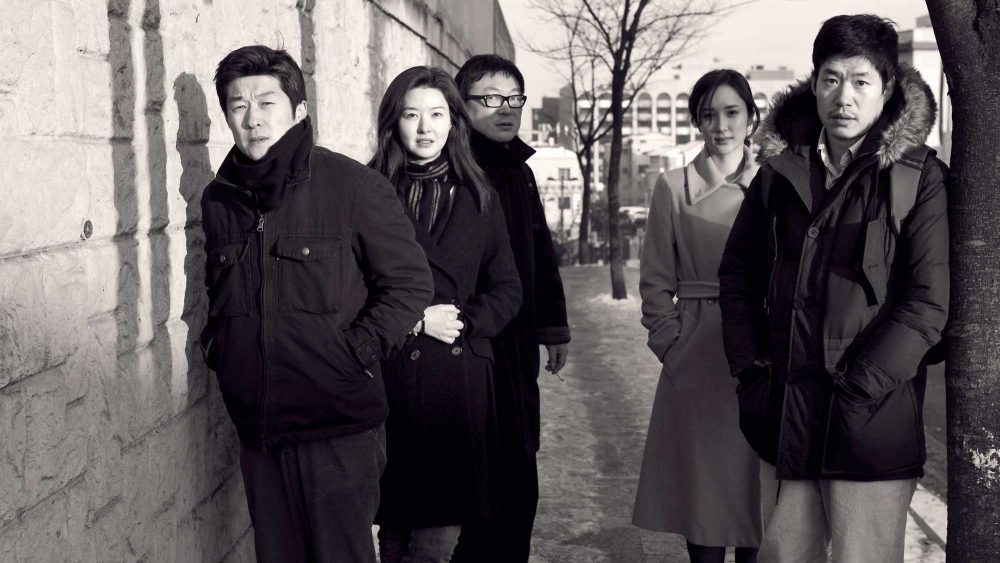
It is no news that Hang Sang-soo blends personal experience in a fictional story to structure an intimate meta-narrative. “The Day He Arrives” could be his most heartfelt, existential slacker comedy. A feckless filmmaker Seong-jun (Yu Jun-sang), four films old, is on the edge of being washed out. He has come to Seoul to meet his friend, a critic named Young-ho (Kim Sang-Joong).
They hang out in a bar over several seemingly repetitive days, just like ‘Groundhog Day’, except that there are new developments and shifts in energy every day. They meet a teacher friend of Young-ho, a bar owner and an actor who was promised a role in Seong-jun’s film. Their interactions are mostly mundane, as you would expect in Hang’s films.
This time around, the characters are more rounded. The mundane conversations are a way to deal with their unperturbed existential crisis. There is bittersweet wisdom in it that makes it even more profound. Simply composed and beautifully shot in black-and-white, “The Day He Arrives” is almost a perfect summation of Hong’s artistic approach and ideas.
18. Painted Fire | Im Kwon-taek | 2002

The sprawling, layered narrative and picturesque visuals of ‘Painted Fire’ takes inspiration from the life and work of a 19th-century Korean painter ‘Jang Seung-eop’. His self-willed artistic fire made him arguably the greatest painter of his time, despite lacking the formal education deemed a necessity to succeed in any art form.
He captivates art connoisseurs with his surreal paintings while battling personal demons and incessant artistic crises at a time of great social and cultural change. Choi Min-Shik embodies artistic vulnerability & stubbornness to deliver the performance of a lifetime.
17. Parasite | Bong Joon-ho | 2019
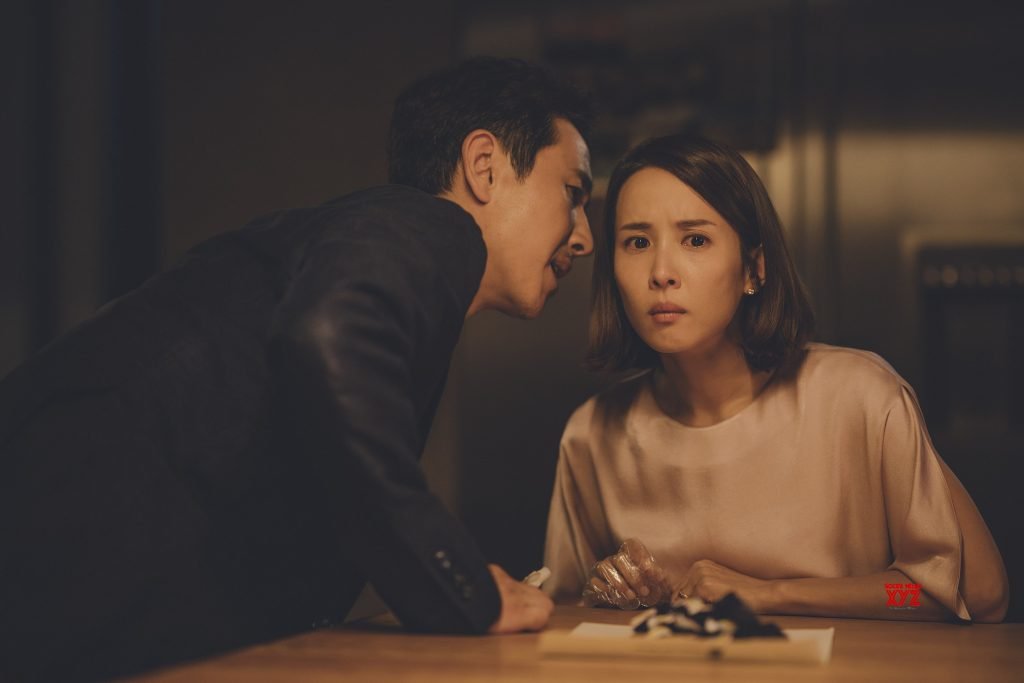
Bong Joon-ho’s wildly entertaining seventh feature changed the course of cinema when it beat hot favorites – Sam Mendes’s one-shot War drama ‘1917’, QT’s love letter to Hollywood Once Upon a Time in Hollywood,’ and Martin Scorsese’s gangster drama ‘The Irishman’ starring veterans Al Pacino, Robert De Niro and Joe Pesci – at the Oscars in 2020, after already having won the Palme d’Or at Cannes (2019). It also pushed general audiences to overcome the one-inch tall barrier of subtitles. The uninitiated folks mellowed down to foreign cinema, especially Korean cinema. It propelled people to look beyond Hollywood films for their dose of entertainment.
Parasite‘ is not the best work of Bong Joon-ho, but it is an immensely entertaining film from the word ‘go. It is a commercial potboiler with an underlying social & class commentary that effortlessly switches between a tragicomedy and a Hitchcockian thriller.
Related to the Best Korean Movies – 10 Films To Watch If You Love Parasite (2019)
16. Past Lives | Celine Song | 2023
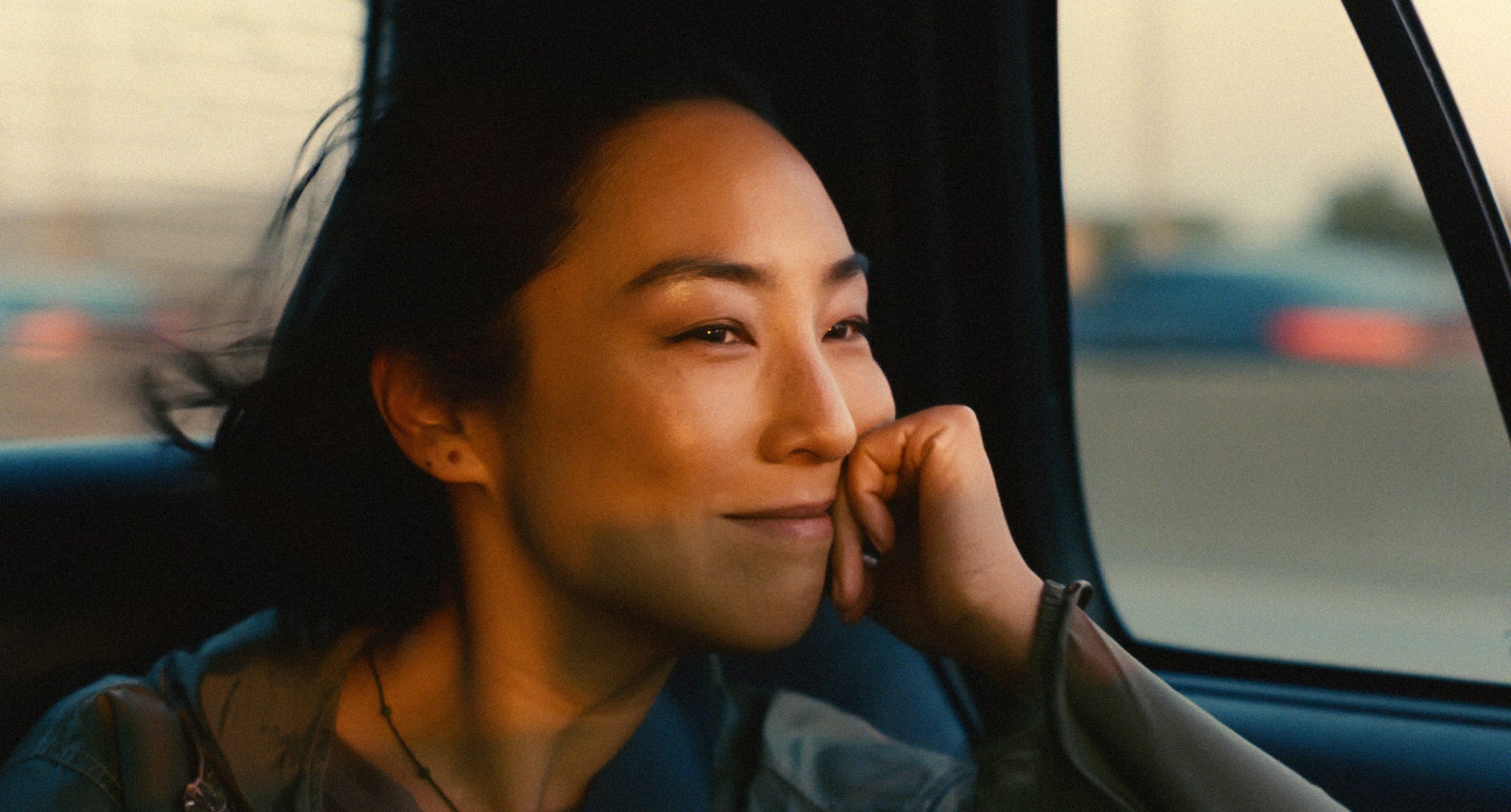
“Past Lives” gives us a close look into the lives of two old friends, Nora and Hae Sung, who navigate through a sea of memories, lost time, and deep connections. Directed by Celine Song, the movie deviates from the conventional storyline of friends reuniting after years. It’s a lot more than that. Some might quickly label this as an immigrant drama or a film about friendship and potential love, but it’s essential to dig deeper to appreciate its real depth and not rush to box it into a category.
Nora and Hae Sung were the best of friends in South Korea, but life sent them on separate ways when Nora moved away with her family. After two long decades apart, fate brings them back together, offering an opportunity to delve into a sea of emotions once buried deep within. As they confront friendship and explore the notion of destiny, this reunion promises to be a week of self-discovery and meaningful connection that will leave an indelible imprint on their lives. But “Past Lives” isn’t just about their story. It quietly, yet effectively, prompts us, the viewers, to think about our life journeys.
The film speaks to the heart, showcasing how our past, the friends we make, and the places we’ve lived stay with us, shaping who we become in subtle ways we might not always realize. This isn’t simply a reunion of friends; it’s a mirror reflecting aspects of life, relationships, and personal growth that often go unspoken. Nora and Hae Sung’s week together isn’t just about reconnecting; it’s also about reconciling with the parts of themselves they’ve left behind.
15. Take Care of My Cat | Jae-Eun Jeong | 2001
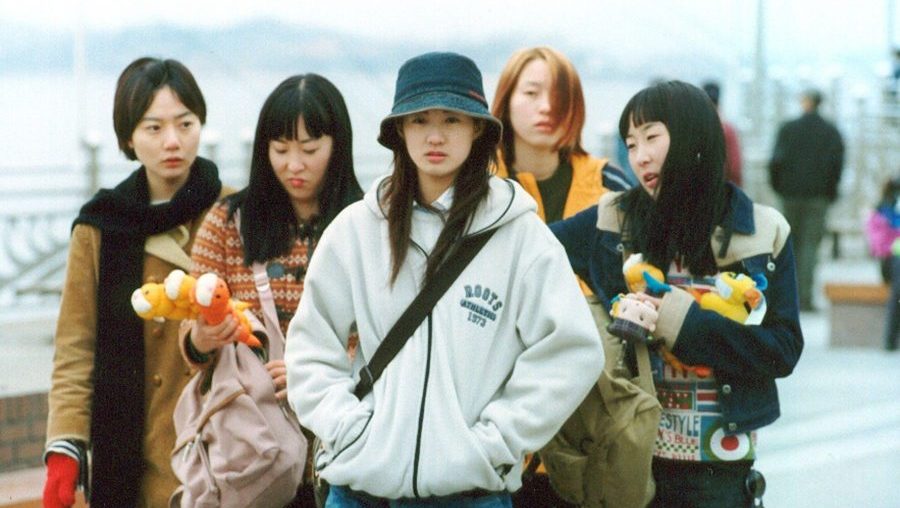
Writer-director Jae-eun Jeong’s ‘Take Care of My Cat’ is a multi-faceted and layered drama. It takes a subtle look at class division and economic disparity that strain the childhood friendship of five friends from the industrial port city of Inchon.
Hae-Joo (Yo-won Lee) is selfish, self-centered, and ambitious, finding happiness in material things. She has planned out her future, and her friends are nowhere to fit in it as she looks down upon them. And it also has to do with their lack of stable jobs. She is particularly dismissive of Ji-young (Ji-young Ok), who wants to study textile design abroad. Ji-young’s parents are dead and the financial crisis at home does not allow her to pursue further studies.
Hae-Joo callously reminds Ji-young about it. Tae-hee (Doo-na Bae) is mature and kind-hearted among all. She works for her parents. She finds staying at home suffocating due to her huge family. The inseparable identical twins, Ohn-jo and Bi-Ryu (Eun-shil and Eun-Joo Lee), are content with their life in a small town. They are indifferent to their poor conditions and have no plans for the future.
Jae-eun structures the plot around three reunions to show the widening crack in their friendship that goes beyond repair. A small cat, which Ji-young finds in an alleyway and is passed from friend to friend, is used to keep the four-story arcs linked.
14. Microhabitat | Jeon Go-woon | 2017
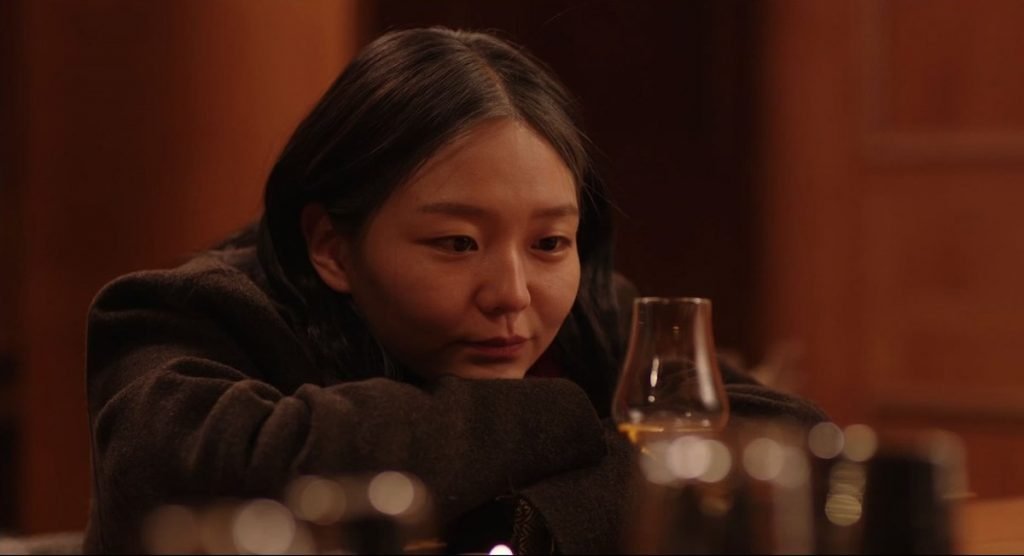
The protagonist of Jeon Go-woon’s directorial debut ‘Microhabitat’, Miso (Esom), chooses her indulgences – whiskey and cigarette – over a roof over her head. An unusual and unexpected choice. But the film is written with such conviction, and a fresh perspective that Miso’s choice in the film seems potent and rational, contrary to my initial assumption that it was emotional. Miso’s dispassionate outlook towards life and priorities will push you to look into your own life.
When the rent goes up, and cigarettes and whiskey turn expensive, Miso heads out couch-surfing around Seoul. She carries an egg tray as a gift for every friend she visits. Jeon Go-woon draws our attention to Korean urban society’s culture and economics against the economics of the poor. She does it without being disparaging or through any pity lens. What is fascinating about Miso is that she barters her trade for necessities and helps her friends in her way so that she does not end up being in debt to her friends, who are probably in debt themselves.
13. Mother | Bong Joon-ho | 2009
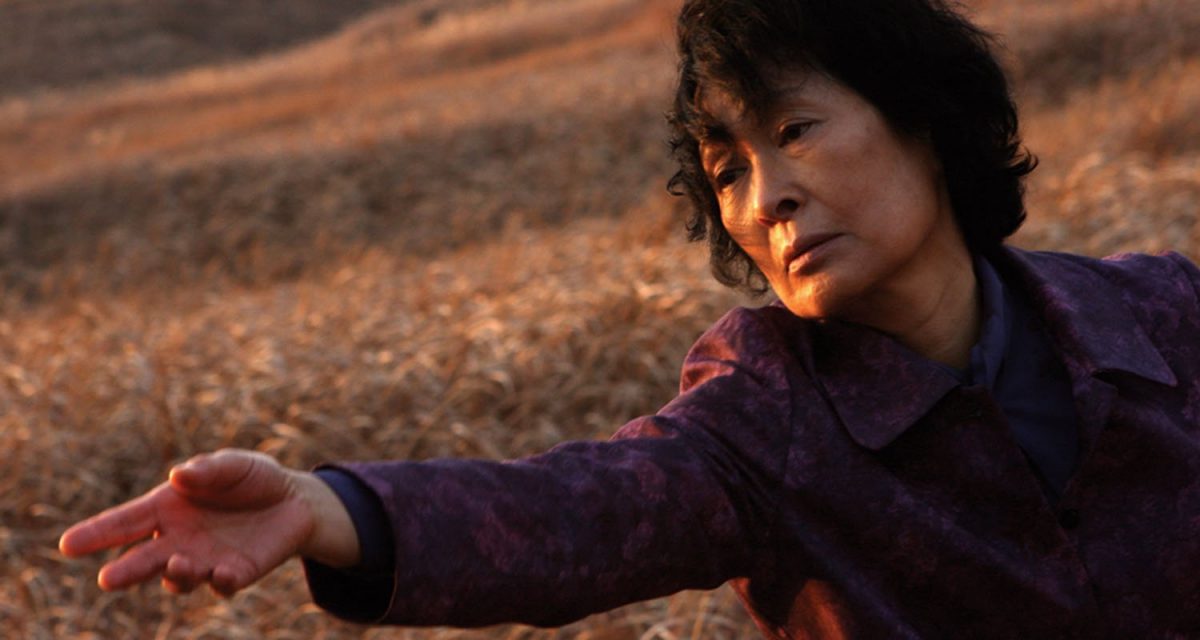
A mother is always considered a symbol of unconditional love who could sacrifice everything for her child without giving a thought. Bong Joon-ho’s ‘Mother’ tries to navigate through the emotional quandary of a mother and realize the actuality of unconditional love.
Bong Joon weaves a gut-wrenching mystery thriller around the murder of a teenage girl, the suspect of which is a marginally intelligent boy. His mother (Kim Hye-Ja ) starts an amateurish investigation to find out the real culprit. It throws her into a labyrinth of deception and moral corruption. Kim Hye-Ja terrifically gets into the skin of this role to give a nuanced performance that audiences will remember for a long time after the credits roll.
12. Spring, Summer, Fall, Winter… and Spring | Kim Ki-Duk | 2004
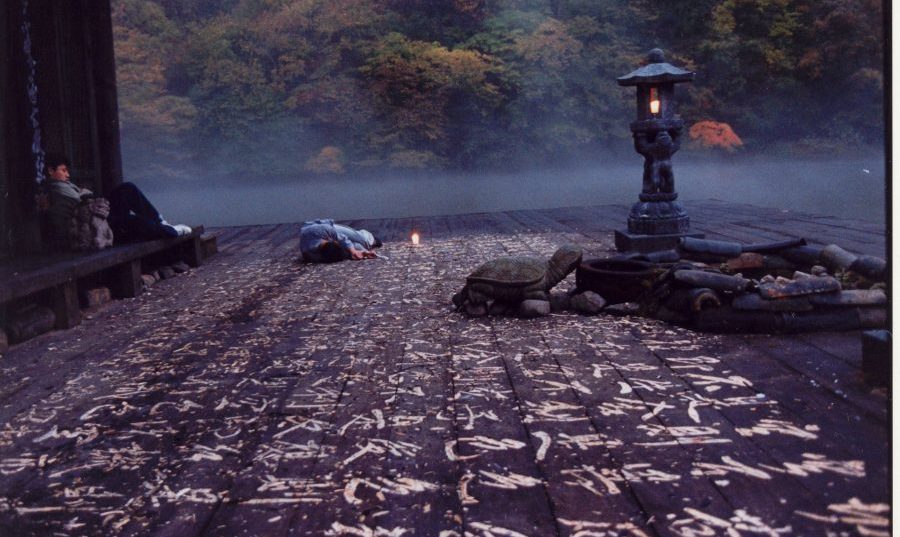
It’s fairly difficult to write about a film that is intuitive, visceral, and so expansive in its sprawling narrative. How do you write about something which mimics life so intimately and explores it in the backdrop of changing seasons?
We are introduced to a small Buddhist monastery, a world in itself, situated on a raft floating in the center of a lake on a mountain. An old monk (Oh Young-soo) is preparing to pass on his wisdom to a child monk (Kim Jong-ho), showing the cycle of life. We see life grow in the backdrop of four seasons, encapsulating the emotions of existing and constantly flourishing as time goes on.
Recommended: 10 Best Films About Facial Surgery
11. Moonlit Winter | Dae Hyung Lim | 2019
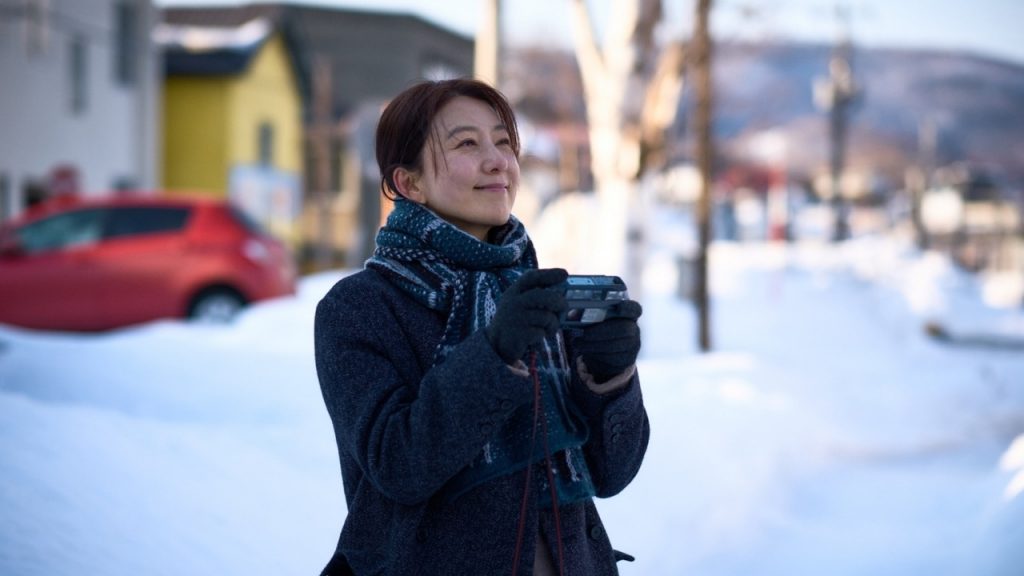
In his sophomore feature, ‘Moonlit Winter’, Lim Dae-Hyung shifts his focus to a mother and daughter’s strained relationship after portraying the relationship between a father and a son in his debut film, ‘Merry Christmas, Mr. Mo’ (2016). Lim takes a conventional story of a wobbly relationship that crawls towards reconciliation; however, that’s a mirage the filmmaker plants to deal with something more sensitive and controversial for Korean society.
Kim Hee-ae stars as a middle-aged woman who bottles up a secret that ends up eating her from the inside out, subsequently resulting in divorce and an embittered life. The shadows of her past come back to haunt her when accidentally, her estranged daughter reads a letter out to her. The subdued narrative is told in an unhurried manner with such pensive sadness that it will crush your heart and throw you into a black hole of melancholy. It stirs such a tsunami of forlorn emotions that it will be difficult to shrug off.
10. The Handmaiden | Park Chan-Wook | 2016

“The Handmaiden” is a rich tapestry of genres, masterfully blending a romantic period narrative with psychological and sensual drama. It also serves as a poignant commentary on Japan’s occupation of Korea in the 1930s, wrapped in a gripping tale where the con artist becomes the conned. Park Chan-Wook’s filmmaking prowess is on full display here, presenting an intricate fable of love, deception, and the empowerment of women, all while indulging in sumptuous imagery.
Park Chan-Wook’s direction skillfully immerses the audience in a vast, intricate puzzle. Viewers find themselves questioning every action, feeling unease at some turns, and, in a darkly humorous way, being thoroughly entertained. The film’s unique blend of story elements and its captivating visual style make it a standout piece in modern cinema.
The Handmaiden Featured in Our List of The 25 Best Non-English Films of 2016
9. Decision To Leave | Park Chan-Wook | 2022

A trace of the psychological violence from Park Chan-wook’s most talked-about film, ‘Oldboy’, is combined with a dash of sexuality from his stunningly gorgeous ‘The Handmaiden’ to give us his most profoundly emotional story that will blow your minds.
Although it initially seems like a textbook rewrite of Paul Verhoeven’s Basic Instinct, this erotic suspense thriller centers on a methodical cop named Hae-jin, played by Park Hae-il, who is looking into the death of a wealthy man. The wealthy man’s wife, Seo-rae, played by Tang Wei, is the main suspect in the case.
The fact that Seo-rae is a Chinese immigrant adds an additional layer of linguistic and cultural complexity to the story. However, Chan-wook’s primary focus is not on the mystery itself but rather on the emotional entanglement that develops between the two main characters as the mystery unfolds, leading to one of the most shocking climaxes.
Related to the Best Korean Movies: 10 Best Korean Movies of 2022
8. Burning | Lee Chang-dong | 2018

“Burning”, by Lee Chang-dong, is a stunning, opaque, ambiguous story filled with uncertain turns of events. It is a well-crafted film with muted cinematography and absolute control over its writing, as displayed in the powerful characterization.
The greatest achievement of “Burning” lies in the controlled and restrained narration that uses minimal exposition, relying on visual cues to express the airtight tension among the characters. Anger, grief, rage, love, and envy are never explicitly expressed. Rather, they are internalized in uncomfortable silences and further heightened by Kim Da-won’s unsettling score.
Burning Featured in Our List of the 25 Best Foreign films of 2018
7. Treeless Mountain | So Yong Kim | 2008
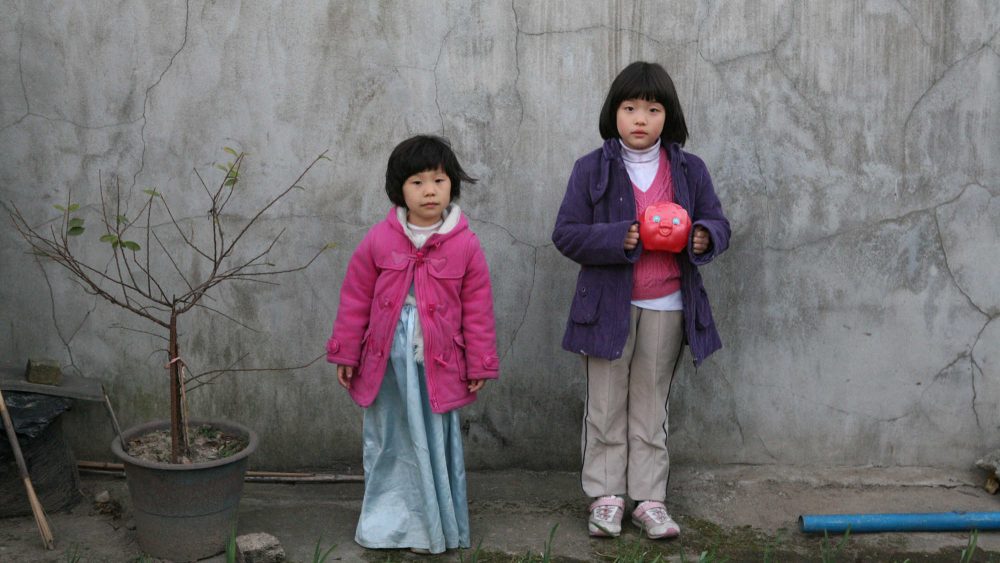
“Treeless Mountain” is a piercing, minimalist movie that smartly avoids sentimentalism to find the naturalism in its narrative and characters. It is about two innocent girls, 7 year old Jin and her younger sister, Bin. Their distraught mother leaves them in the care of their aunt while she attempts to reconcile with her delinquent husband. In one of the scenes, Aunt (Mi Hyang Kim) scolds 5-year-old Bin for peeing in bed. The girl sincerely asserts a couple of times that she did not pee in bed. It is her 7-year-old elder sister Jin who has wet the bed, but Jin remains a silent spectator out of embarrassment.
Any other filmmaker would have created a space for dramatic conflict to empathize with Bin, but the writer-director So Yong Kim, never revisits the issue to resolve the misunderstanding. She never provides an easy answer. She never trivializes the naivety of young girls for the sake of creating a linear arc that validates their innocence. So Yong Kim weaves the heart-wrenching story with a fabric similar to Asghar Farhadi’s complex but nuanced dramas and Majid Majidi and Jafar Panahi’s impeccable charm in portraying the innocence that children possess.
Recommended: 10 Most Essential Majid Majidi Films
6. Secret Sunshine | Lee Chang-dong | 2007
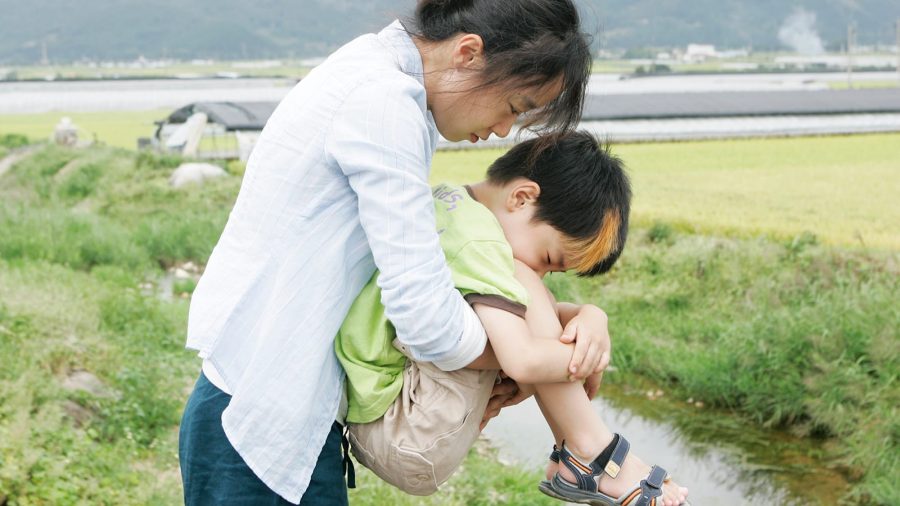
“Secret Sunshine” is an unflinching, lyrical drama that gets emotionally taxing as we get to know more about the meek and genial Shin-ae (Jeon Do-Yeon). Lee Chang-dong’s dense narrative is brimming with the emotional and psychological breakdowns that Shin-ae experiences while grieving over the loss of her son. The opening scene of the film foreshadows the fate of Shin-ae and her son. They are stuck in the middle of the highway, looking for help while moving to Miryang (which literally translates to ‘Secret Sunshine’ in Chinese). She wishes to begin a fresh life in her husband’s native land after his death.
Her unsettled life takes a tragic turn when her son is kidnapped and later found dead, leading her to the struggle of finding peace amidst personal loss, grief, leveling disillusionment, and shaky faith. Jeon Do-Yeon gave a committed and superlative performance that won her Best Actress award at the 60th Cannes Film Festival.
5. The King and the Clown | Lee Joon-ik | 2005
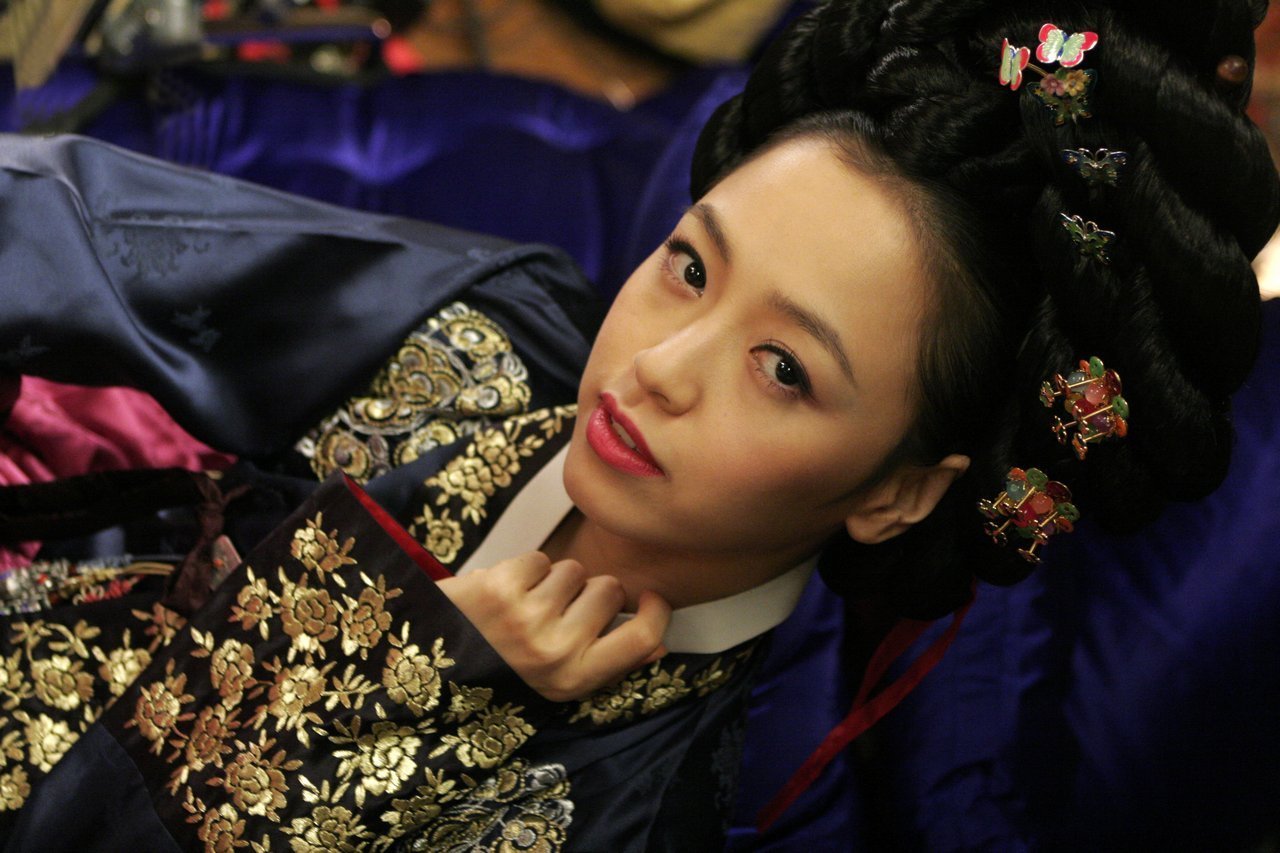
“The King and the Clown,” a historical tragicomedy, stands out as a rich and intricate exploration of themes such as sexuality, love, jealousy, and madness, all set against the vibrant backdrop of 15th-century Korea during King Yeonsan’s reign. This film, a shining example of Korean cinema’s depth, weaves these themes into a layered narrative reminiscent of Shakespearean tragedy, filled with powerful monologues and dramatic elements.
Adapted from the play “Yi” (“You”), the movie, directed by Lee Joon-ik and written by Choi Seok-hwan, skillfully deconstructs the complex relationships between two doomed traveling clowns. Their journey, marked by compassion and a yearning for a better life, places them in a tangle of emotions and social commentary, making it a significant addition to the best movies Korea has offered. The film’s nuanced portrayal of these characters and their struggles highlights the ability of Korean cinema to delve into rich, emotional storytelling.
4. The Wailing | Na Hong-jin | 2016

Na Hong-jin seamlessly blends multiple genres with ease, constructing a psychological horror movie involving satanic cults and ancient folk tales. the eponymous ‘wailing’ is like a giant monster who is not visible, but its terrorizing, ominous presence of supernatural force is felt through the eerie silence which makes the audiences feel like they are about to be gulped by the rain of horror.
The Wailing Featured in Our List of the 50 Best Films of 2016
Set in a small mountain town in South Korea, village dwellers find themselves amidst a nightmare – the mysterious killing of dwellers with no suspect in sight. Na Hong-jin lets the central plot grow organically with time while keeping its audiences busy setting the puzzling trap of horror, served with a dash of doleful humor. This horror gem is certainly one of the best Korean movies of the century.
3. Peppermint Candy | Lee Chang-dong | 2000
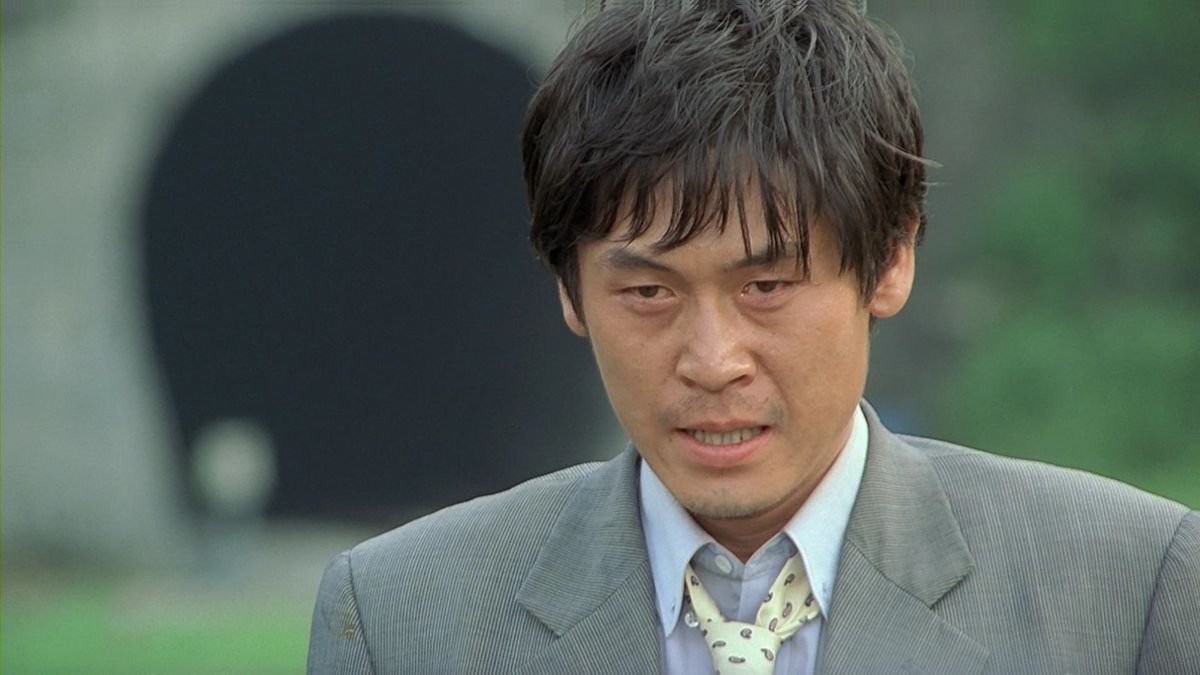
Lee Chang-dong’s “Peppermint Candy” is an unflinching and unhurried examination of a man against the backdrop of the ever-changing, volatile sociopolitical environment in Korea. The five phases in the protagonist’s life form the narrative in “Peppermint Candy”. It is structured in reverse order and opens with his suicide on the bridge, then goes back in time to his college days. It does a psychological exploration of Young Ho (Sol Kyung-gu) after he accidentally shoots an innocent girl during the Gwangju massacre in the 1980s.
Also, Read: Every Lee Chang-dong film ranked
It leaves a scar on his psychology that turns into a blister under the military dictatorship in the Korean government, during the 1980s and during the economic crisis in the 1990s. “Peppermint Candy” also explores the rise of masculinity in Korean society that chews up the relationship of Young Ho with his wife and enables his toxic behavior. Director Lee Chang-Dong explores one of the most tragic moments in Korean history in an extremely powerful way by portraying a male character who struggles within its militarized society.
2. Memories of Murder | Bong Joon-ho | 2003
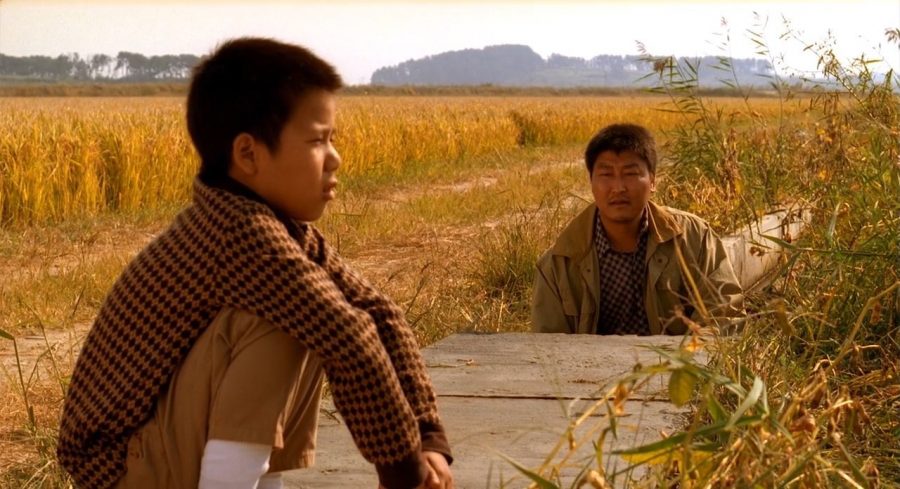
Richly detailed and nerve-racking, “Memories of Murder” is a masterful work in character study and in creating a disquieting and chaotic atmosphere throughout a film. The muted color cinematography and the vast emptiness of the fields in the rain create a sense of horror lurking in every frame. The ritualistic serial killing of women in a small town in South Korea brings two inept local police officers along with a calm and sensible Seoul officer to crack the case.
Also, Read: Every Bong Joon-Ho Film Ranked
The killings are graphical and unsettling but Bong Joon-ho layers the investigation with the hilarity of the mismatch between the sensibilities and attitudes of the two police officers. The conflict in their approach to the case reveals a great deal about the critical connection between these people and the repressive society. As the lunkheaded officers become obsessed with the case, the character arc sees a tectonic shift that brings to life, the psychological impact of the ongoing serial killings. Bong Joon-Ho’s masterpiece is one of the best Korean movies of the century and probably of all time.
1. Poetry | Lee Chang-dong | 2010
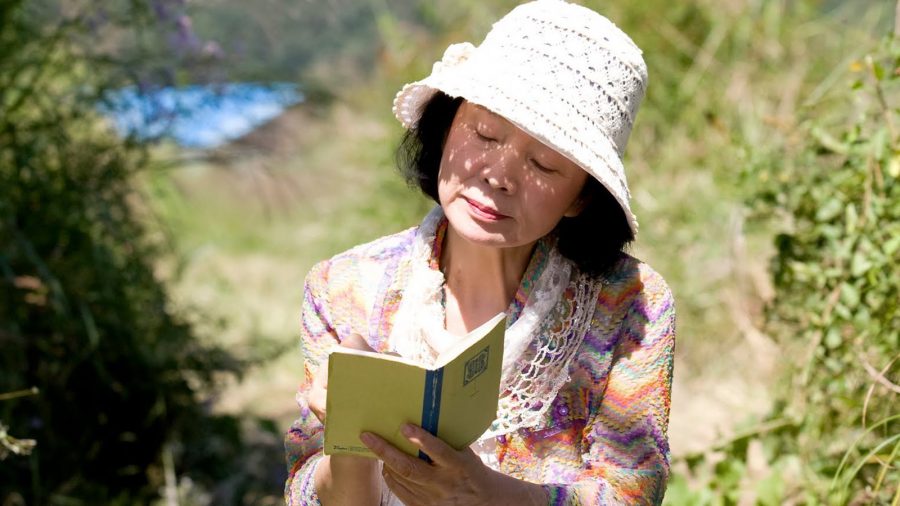
INARGUABLY and I say this in bold letters on purpose, the best Korean movie of the century. Lee Chang-dong is undoubtedly one of the best contemporary screenwriters and directors working today. Even with the thinnest plot that can be reduced to one sentence, the complex and layered drama that he packs will require multiple viewings to be comprehended completely. It does not get better than in “Poetry”. Contemplating guilt and grief and venting it out while facing an existential crisis forms an underlying theme of Lee’s melancholic “Poetry.” This is Lee’s most accessible work, but it contains a multitude of emotional and psychological layers.
Related to Best Korean Movies: 10 Great Korean Films You Can Watch on Netflix
“Poetry” is a film rich in emotions and complex thoughts. The emotional depth and psychological complexity Lee’s film carries is nothing less than a conundrum piece. It tells the story of Mija, a 66-year-old woman who works part-time as a caretaker. She lives with her grandson in a simple home and discovers she has Alzheimer’s disease. As she joins a poetry class, eager to learn a new way to express herself, there’s a poignant irony: she’s learning to create with words at the same time she’s starting to lose her memory of them.



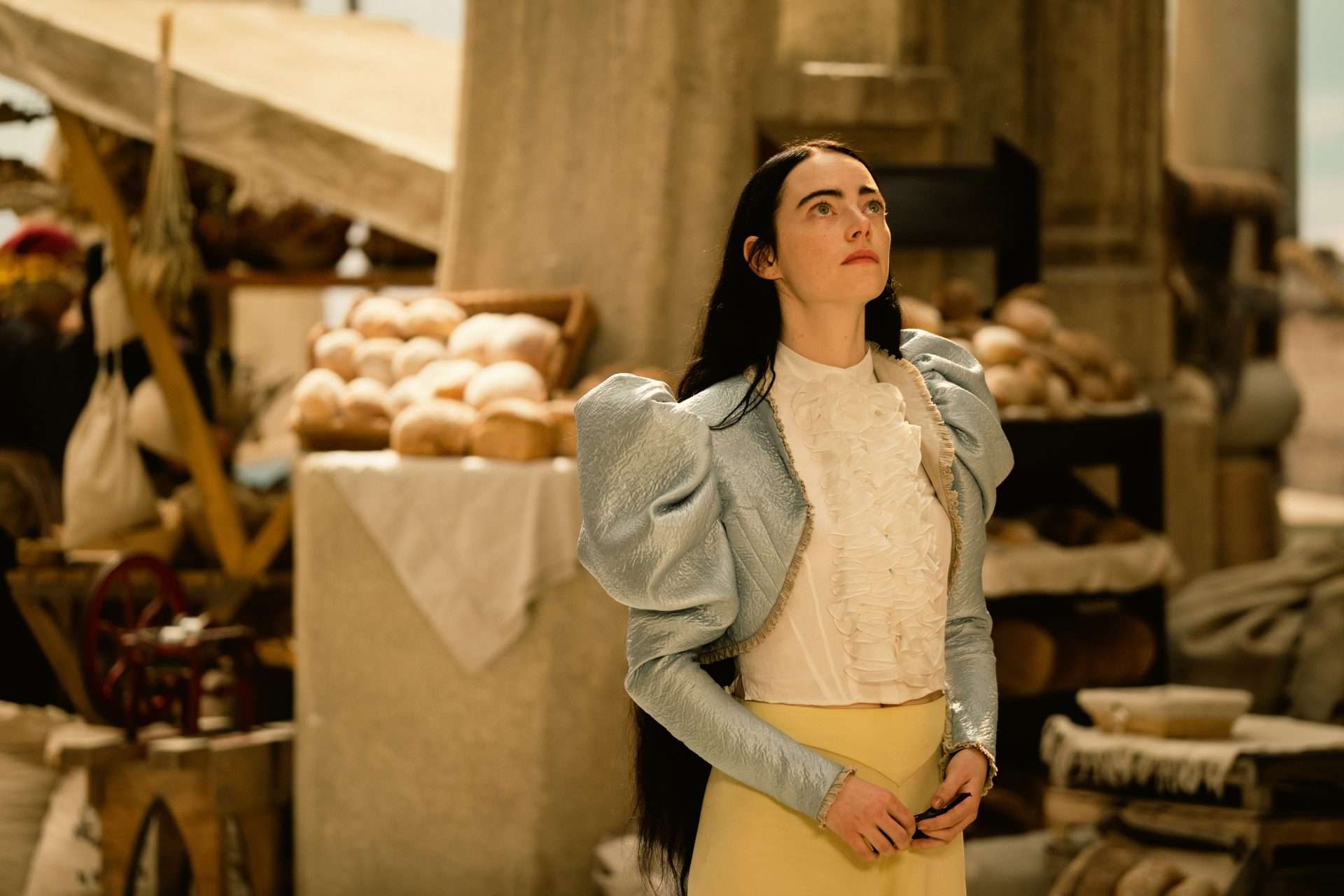


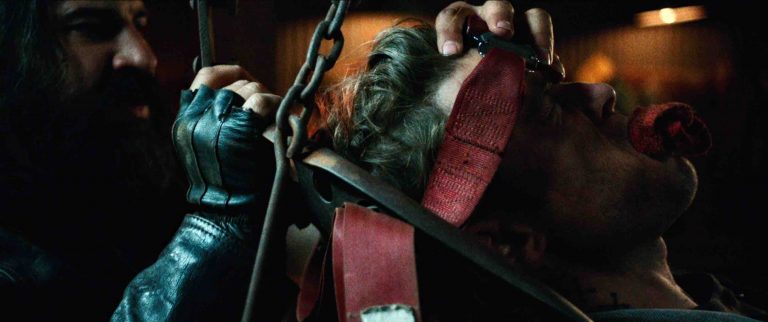
![M.F.A [2017]: Fantasia Film Festival Review](https://www.highonfilms.com/wp-content/uploads/2017/08/MFA-Main-768x415.jpg)
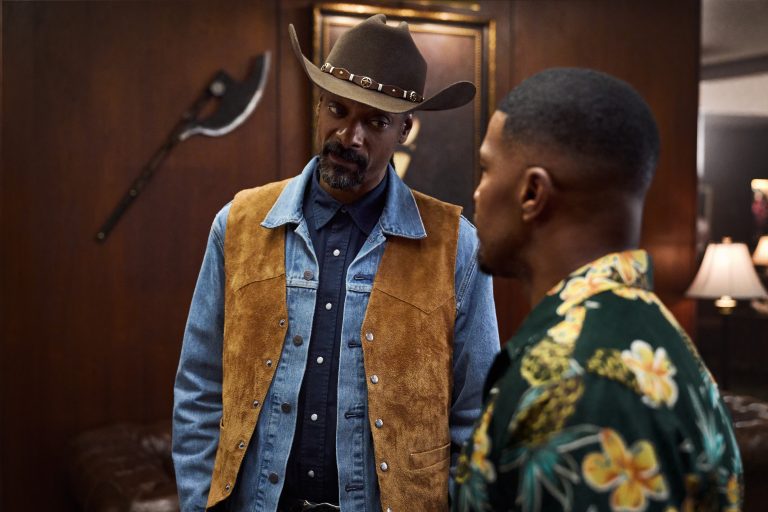
![The Love Witch [2016] : An Enchanting Feminist Bomb!](https://www.highonfilms.com/wp-content/uploads/2016/12/the-love-witch-768x432.jpg)

